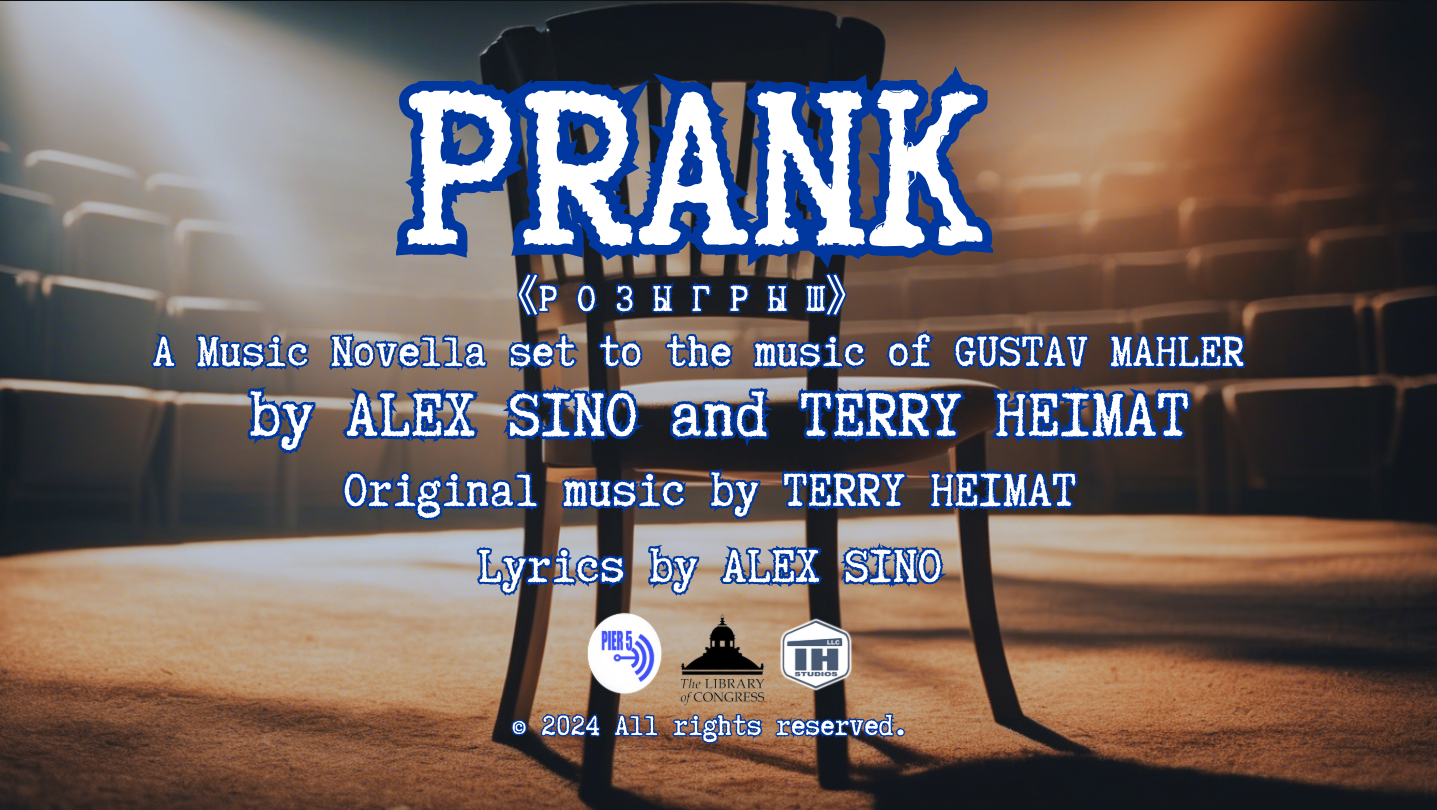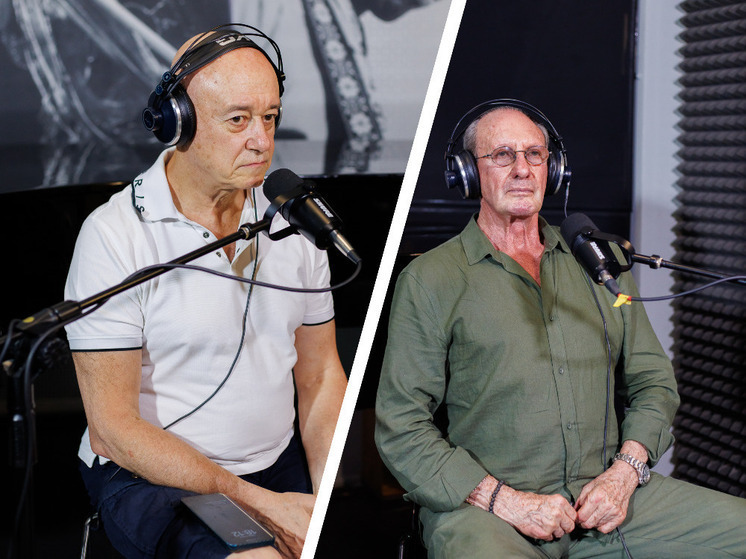IGOR SANDLER AND ALEXANDER RAPOPORT, PHOTO: IGOR SANDLER'S STUDIO
In Igor Sandler's studio, twilight arrives unnoticed, as if sneaking in behind the sounds of voices. Two people sit across from each other — not a host and a guest, but two creative souls tuned to the same wavelength. And via video link, there are two more creative individuals in the studio: producer, musician, and writer Alex Sino, currently in Italy, and composer, conductor, and professor at the Music Academy of Zhangjiajie, Hunan, China, Terry Heimat.
Igor Sandler: Guys, I just listened to an excerpt from the play by Alex Sino and Terry Heimat titled "Prank," performed by Alexander Rapoport. I found it interesting. I want to ask Alex Sino — what is the play about?
Alex Sino: The play "Prank" is an intellectual detective story with a musical soul, where scenes unfold in a chaotic and mysterious orchestral rehearsal room. It's a kind of "Orchestral Rehearsal" of Fellini, but in today's context. Against the backdrop of Mahler's First Symphony, particularly its "provocative part" — The Hunter's Funeral — original compositions by Haimat and poems by Sino play. It's not just drama — it's a musical phantasmagoria, where each episode is structured according to the canons of a classical symphony: from overture to finale. The plot keeps the audience on the edge of their seats until the last moment, and the "spirit of Mahler" hovers over the characters, immersed in their dreams and mysteries.
Igor Sandler: (There is something more than professional curiosity in his eyes). Sasha (Rapoport), you know, whenever I listen to Mahler, I always feel that this is not music — it’s a scream. The scream of a person who cannot remain silent. And now you, along with Alex Sino and Terry Heimat, take on the courage of… what? Explaining this scream to the audience?
Alexander Rapoport: A long pause. Igor, let me tell you what happened when the three of us first started talking about Mahler. Alex (Sino) called me while I was on my way to gather material for a traditional annual reading at the "Sovremennik" theater, a sort of report on the work of the year, and said, "Sasha (we've been friends for over 30 years!), I have the main role for you in your acting career. Do you want to play Leonard Bernstein and Gustav Mahler in one person?” I told the driver to turn around and to Alex, "Old man, send me the material." I listened to Mahler all night and realized — we must give Mahler a voice.
Alex Sino: Friends, Mahler did not die. He was just waiting for us to mature enough to hear him.
Rapoport: And you know what I realized? We are not deciphering his scream. We become his echo.
Rapoport: And you know what I realized? We are not deciphering his scream. We become his echo.
FIRST WOUND: A CHILDHOOD THAT DOESN'T END
Sandler: In your project, you play several roles. But speaking of Mahler himself — who was he deep down? A child? A revenger? A prophet?
Rapoport: In modern society, there is a growing interest in psychological aspects and mental health. "PRANK" touches on themes of manipulation, fear, and pressure, showing how social interactions can impact an individual's and society's self-esteem. This context allows the audience to appreciate how small actions can have serious emotional and psychological consequences. When asked in childhood what he wanted to be, Mahler replied: "A martyr." His messianic aspirations became evident in his teenage years. He borrowed from Schopenhauer and preached the idea that humanity could only be saved by relentless devotion to art and the tireless search for the divine. He was a maniacal seeker of God.
He pulls out sheets of paper. Let me read you something. This is from my notes for the performance —
"Little Gustav stands by the window of their house in Kalisht. Behind the wall — the screams of his father, the cries of his mother. Marie Mahler gave birth to fourteen children, but nine of them… nine little coffins. Gustav counts them on his fingers — Isidor, Ernst, Leopold… Each name hits like a hammer on the piano strings. And suddenly — a barrel organ plays in the street. A silly, cheerful melody bursts into the house filled with grief. And Gustav understands: here it is, life. Pain and joy, death and music — all at once, all in one heart. He will remember this moment forever. Later, telling Freud, he will say, 'Doctor, since then I cannot separate tragedy from farce — they live alongside each other within me.'”
That’s who he was, Igor. A child who understood too early that the world is both cruel and beautiful at the same time.
Sandler: silent, digesting what he has heard. These are the roots of his symphonies, right? Those sudden transitions from a funeral march to a waltz, from despair to childlike joy…
Terry Heimat: Exactly! When I arrange Mahler's works, I hear not the composer — I hear memory. The memory of a child who has seen too many deaths.
Historically, outstanding conductors possessed several common traits: acute hearing, an appeal that enchanted musicians at first sight, great organizational skills, physical and spiritual strength, ruthless ambition, powerful intellect, and an innate sense of order that managed to pierce through thousands of disparate notes to reach the artistic core of the musical work. The ability to perceive the score as a whole and convey that experience to others is the essence of interpretation.
Historically, outstanding conductors possessed several common traits: acute hearing, an appeal that enchanted musicians at first sight, great organizational skills, physical and spiritual strength, ruthless ambition, powerful intellect, and an innate sense of order that managed to pierce through thousands of disparate notes to reach the artistic core of the musical work. The ability to perceive the score as a whole and convey that experience to others is the essence of interpretation.
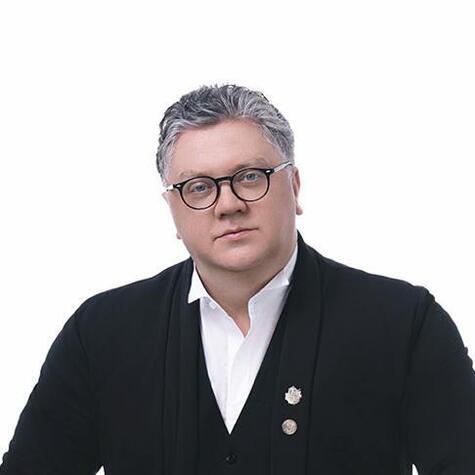
TERRY HEIMAT, PHOTO FROM TERRY HEIMAT'S PERSONAL ARCHIVE
SECOND WOUND: THREE TIMES EXILED
Sandler: What about Mahler's loneliness? After all, he was famous, conducted in the best theaters in the world…
Rapoport: bitterly smiles. It’s scary to delve into Mahler. God knows what you can hear there. And what you can learn. You know, there’s a thing called loneliness in a crowd. That’s why the question remains relevant — why Mahler? Is it about the music or the man? As Mahler himself said, he was threefold homeless: a Jew born in Bohemia, who spoke German and lived in Austria.
Alex Sino: One of the main characters in the play says: Music is not for entertainment. It shakes the world, influences ethics and human behavior. Later it turned out that Mahler said something similar — Judaism is like a swimmer with short arms, making double efforts to be the first to arrive. Or Mahler quoted ancient wisdom, or the Jews drew wisdom from Mahler.
Terry Heimat: Mahler understood early that to succeed in the heart of Europe’s largest empire, merely having talent was not enough. You also needed power. Without absolute control over everything that the opera performance depended on, achieving perfection in Vienna, regarding what Wagner envisioned — a union of all arts in Gesamtkunstwerk — was impossible.
Alex Sino: One of the main characters in the play says: Music is not for entertainment. It shakes the world, influences ethics and human behavior. Later it turned out that Mahler said something similar — Judaism is like a swimmer with short arms, making double efforts to be the first to arrive. Or Mahler quoted ancient wisdom, or the Jews drew wisdom from Mahler.
Terry Heimat: Mahler understood early that to succeed in the heart of Europe’s largest empire, merely having talent was not enough. You also needed power. Without absolute control over everything that the opera performance depended on, achieving perfection in Vienna, regarding what Wagner envisioned — a union of all arts in Gesamtkunstwerk — was impossible.
Orchestra members feared him because he would not compromise in matters of art and was as unflinchingly strict with musicians in rehearsals as with himself, — said one of Mahler's conductor colleagues.
Rapoport: As a psychotherapist, I've met many such people — those who do not completely belong to any world. This is a special pain, Igor. You are a guest everywhere, even in your own soul.
A long pause.
Sandler: And how does this pain transform into music?
Rapoport: Ah, this is where the alchemy begins! Terry explained a wonderful thing: Mahler did not hide from pain — he befriended it. His symphonies are a dialogue with his own despair.
In our performance, there's a scene where Mahler is at the conductor's podium. And he is not just conducting — he is fighting. With the audience that doesn't understand him, with the musicians that resist him, with his own heart that tears apart from his love for music.
Rapoport: As a psychotherapist, I've met many such people — those who do not completely belong to any world. This is a special pain, Igor. You are a guest everywhere, even in your own soul.
A long pause.
Sandler: And how does this pain transform into music?
Rapoport: Ah, this is where the alchemy begins! Terry explained a wonderful thing: Mahler did not hide from pain — he befriended it. His symphonies are a dialogue with his own despair.
In our performance, there's a scene where Mahler is at the conductor's podium. And he is not just conducting — he is fighting. With the audience that doesn't understand him, with the musicians that resist him, with his own heart that tears apart from his love for music.
THIRD WOUND: ALMA AND THE PRICE OF LOVE
Sandler: Tell me about Alma. After all, this is the central drama of his life — a love that both saved and killed?
Rapoport: takes another sheet, his voice softens:
"1902. Gustav Mahler falls in love with Alma Schindler — a beauty, a composer, a woman with her own talent. But Mahler's love is a hurricane. He tells her, 'There can only be one composer in the house — and that’s me.'
Alma falls silent. Her symphonies remain unfinished. But can you silence a soul? It will take its revenge on him through infidelities, coldness, and reproaches. And he will write her love letters and the adagio from the Fifth Symphony — the most tender declaration of love ever sounded in an orchestra."
Sandler: And what happened next? The marriage couldn’t withstand it?
Rapoport: 1910. Alma falls in love with architect Walter Gropius. Mahler finds a love letter addressed to him — she mixed up the envelopes. Can you imagine that scene? He reads someone else’s words of love for his wife…
Sandler: How can you live after that?
Rapoport: Now here begins the most interesting part. Mahler goes to Freud! In Leiden, for four hours — the only psychotherapeutic session of his life. And you know what happens? Freud shows him that he himself killed the composer in Alma. That his love was a form of suffocation.
Mahler returns and does the incredible — he publishes Alma's songs! Holds a concert of her music! Tries to resurrect what he himself killed.
Rapoport: takes another sheet, his voice softens:
"1902. Gustav Mahler falls in love with Alma Schindler — a beauty, a composer, a woman with her own talent. But Mahler's love is a hurricane. He tells her, 'There can only be one composer in the house — and that’s me.'
Alma falls silent. Her symphonies remain unfinished. But can you silence a soul? It will take its revenge on him through infidelities, coldness, and reproaches. And he will write her love letters and the adagio from the Fifth Symphony — the most tender declaration of love ever sounded in an orchestra."
Sandler: And what happened next? The marriage couldn’t withstand it?
Rapoport: 1910. Alma falls in love with architect Walter Gropius. Mahler finds a love letter addressed to him — she mixed up the envelopes. Can you imagine that scene? He reads someone else’s words of love for his wife…
Sandler: How can you live after that?
Rapoport: Now here begins the most interesting part. Mahler goes to Freud! In Leiden, for four hours — the only psychotherapeutic session of his life. And you know what happens? Freud shows him that he himself killed the composer in Alma. That his love was a form of suffocation.
Mahler returns and does the incredible — he publishes Alma's songs! Holds a concert of her music! Tries to resurrect what he himself killed.
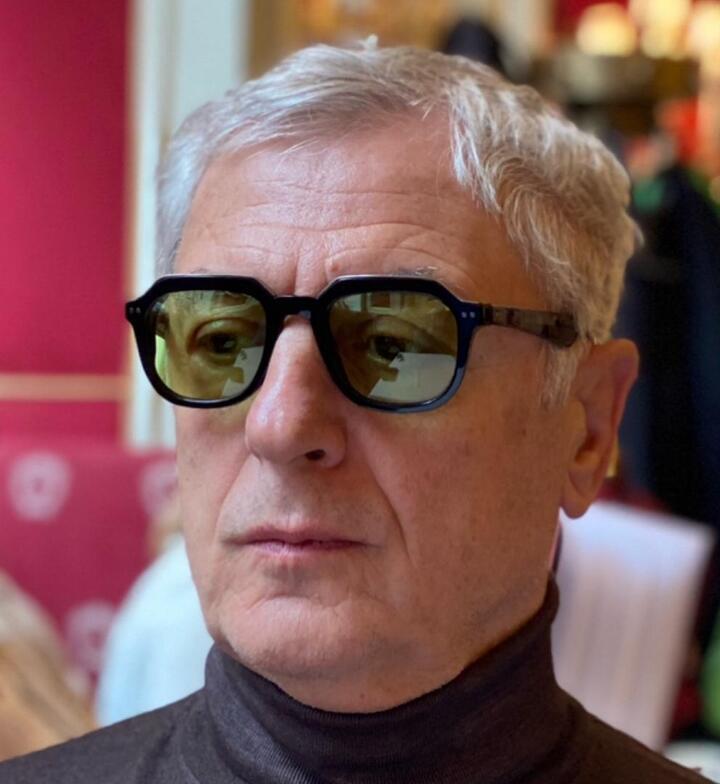
ALEX SINO, PHOTO FROM ALEX SINO'S PERSONAL ARCHIVE
Alex Sino: The ideal state in life that Mahler aspired to is hindered by struggle and hustle. But life, says Maestro, the main character of "Prank," cannot be understood without suffering and death. Mahler had complex feelings about life, death, music, and family — he loved, feared, hated, and felt guilt simultaneously.
FOURTH WOUND: CHILDREN AND DEATH
Sandler: His voice grows softer. And the children? I know their daughter died…
Rapoport: …1907. Mahler writes "Songs on Dead Children" — three years before his own daughter dies. Maria Anna, four years old. Scarlet fever.
He reads, and there’s something broken in his voice:
"He stands by the little coffin and thinks, 'Lord, I've sung about dead children while mine were alive. I must have called this upon myself with my songs.' And Alma looks at him in horror — as if she sees a murderer. Because she thinks so too.
After the funeral, he can't write for months. Silent, like a frozen piano. And then 'The Song of the Earth' is born — the most sorrowful work in the history of music. 'Ewig… ewig…' — 'Eternal… eternal…' — the last words of the symphony dissolve in the air like the breath of a dying child."
Sandler: Quietly: How do you endure this? How can you play such things while empathetically engaging in multiple characters?
Rapoport: Smiles. Igor, I do not play pain — I heal it. When an audience member weeps in the hall while listening to Mahler's story — it’s not entertainment. It’s catharsis. It’s healing through art.
Rapoport: …1907. Mahler writes "Songs on Dead Children" — three years before his own daughter dies. Maria Anna, four years old. Scarlet fever.
He reads, and there’s something broken in his voice:
"He stands by the little coffin and thinks, 'Lord, I've sung about dead children while mine were alive. I must have called this upon myself with my songs.' And Alma looks at him in horror — as if she sees a murderer. Because she thinks so too.
After the funeral, he can't write for months. Silent, like a frozen piano. And then 'The Song of the Earth' is born — the most sorrowful work in the history of music. 'Ewig… ewig…' — 'Eternal… eternal…' — the last words of the symphony dissolve in the air like the breath of a dying child."
Sandler: Quietly: How do you endure this? How can you play such things while empathetically engaging in multiple characters?
Rapoport: Smiles. Igor, I do not play pain — I heal it. When an audience member weeps in the hall while listening to Mahler's story — it’s not entertainment. It’s catharsis. It’s healing through art.
LAST WOUND: DEATH AS LIBERATION
Sandler: And the finale? How did Mahler die?
Rapoport: He gets up, walks around the studio. 1911. New York. Mahler conducts his last "Ninth" — a symphony of testament. He has a sick heart but doesn’t stop. He conducts as he breathes — for without music he will suffocate faster.
He returns, his voice becomes solemn and sad:
"He dies in Vienna, in a house on Förstergasse. Alma is by his side — they reconciled before his death, as often happens. And do you know what his last words are? 'Mozart… Mozart…'
Not 'Alma,' not 'the children,' not 'forgive me' — 'Mozart.' He dies in music, just as he lived. And perhaps that’s the only way for a composer to die — to dissolve in the beauty that you created all your life."
Sandler: After a long pause. Sasha, why do we need this pain today? Why pick at someone else's wounds?
Rapoport: Sits down, looks straight into his eyes. Igor, as a physician, I know: pain that isn’t spoken about doesn’t disappear — it turns into a symptom. Mahler spoke his pain through symphonies. We express it through theater.
Mahler didn't write for his time — he wrote for ours. For an era when people forget how to feel.
In a world where everything is fast and superficial, we need a composer who makes you stop and hear your own heart.
Alex Sino: The music in the "Titan" and "The Hunter’s Funeral" is eternal, mourning for tyrants repeats again and again, and the "beasts" learn nothing. Or are afraid to learn…
Terry Heimat: Mahler's music reminds me of Einstein's theory. Time in music compresses or accelerates depending on the mood. Despite his despotism, Mahler did not dictate the tempo in the performance of his works. As the character of "Prank," Odessa native Semyon Grigoryevich, said, you won't find music in the notes. You need to feel it.
He returns, his voice becomes solemn and sad:
"He dies in Vienna, in a house on Förstergasse. Alma is by his side — they reconciled before his death, as often happens. And do you know what his last words are? 'Mozart… Mozart…'
Not 'Alma,' not 'the children,' not 'forgive me' — 'Mozart.' He dies in music, just as he lived. And perhaps that’s the only way for a composer to die — to dissolve in the beauty that you created all your life."
Sandler: After a long pause. Sasha, why do we need this pain today? Why pick at someone else's wounds?
Rapoport: Sits down, looks straight into his eyes. Igor, as a physician, I know: pain that isn’t spoken about doesn’t disappear — it turns into a symptom. Mahler spoke his pain through symphonies. We express it through theater.
Mahler didn't write for his time — he wrote for ours. For an era when people forget how to feel.
In a world where everything is fast and superficial, we need a composer who makes you stop and hear your own heart.
Alex Sino: The music in the "Titan" and "The Hunter’s Funeral" is eternal, mourning for tyrants repeats again and again, and the "beasts" learn nothing. Or are afraid to learn…
Terry Heimat: Mahler's music reminds me of Einstein's theory. Time in music compresses or accelerates depending on the mood. Despite his despotism, Mahler did not dictate the tempo in the performance of his works. As the character of "Prank," Odessa native Semyon Grigoryevich, said, you won't find music in the notes. You need to feel it.
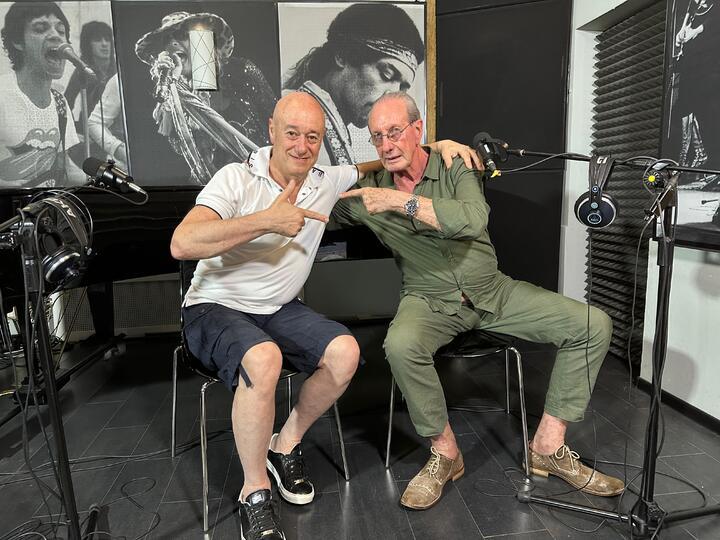
RETREATMENT. THROUGH THEATER
Sandler: And what happens to the audience when they watch your "The Draw"?
Rapoport: He smiles - for the first time in the whole conversation: you know, the strangest thing... People expect something light, playful. And what they get is a session of collective therapy.
Sandler: So Mahler is a cure?
Rapoport: Art heals. Mahler simply gave us an instrument - music that doesn't lie. And we turned that instrument into theater, which doesn't lie either.
Rapoport: He smiles - for the first time in the whole conversation: you know, the strangest thing... People expect something light, playful. And what they get is a session of collective therapy.
Sandler: So Mahler is a cure?
Rapoport: Art heals. Mahler simply gave us an instrument - music that doesn't lie. And we turned that instrument into theater, which doesn't lie either.
He gets up, goes to the wall.
We don't play Mahler - we let him play us. It's all about development and the energy inherent in the music.
We don't play Mahler - we let him play us. It's all about development and the energy inherent in the music.
He stands up, and swaying recites:
It's all about sonata form, friend.
It's a misfortune, and a blessing.
The prologue sets destiny in motion,
The prologue in a sonata is a hard worker.
In the prologue, the melody of the main theme
Wrestles with the secondary theme.
In the prologue, the title part
Hasn't yet become familiar.
It's all about sonata form, friend.
The sonata is a capricious lady.
There's no other form known in the world
Where music tells the drama.
There's no rhythmic text in a sonata,
The title melody rhymes with the syllable,
And if she's talented
And if she's talented, she'll develop in time.
It's all about sonata form, friend.
Development will change the coda.
The reprise is a powerful prologue,
When freedom leaves the melody.
The reprise is already known
It's the fusion of the main themes.
The reprise is a repetition of the prologue,
And we knew it beforehand.
It's all about sonata form, friend.
But suddenly, if the coda is not a repetition,
It sounds like a creative trick,
And that creates doubt.
Doubt is a thorn
In a prologue that sounds tender.
You can feel the ending,
It's useless to predict
It's a misfortune, and a blessing.
The prologue sets destiny in motion,
The prologue in a sonata is a hard worker.
In the prologue, the melody of the main theme
Wrestles with the secondary theme.
In the prologue, the title part
Hasn't yet become familiar.
It's all about sonata form, friend.
The sonata is a capricious lady.
There's no other form known in the world
Where music tells the drama.
There's no rhythmic text in a sonata,
The title melody rhymes with the syllable,
And if she's talented
And if she's talented, she'll develop in time.
It's all about sonata form, friend.
Development will change the coda.
The reprise is a powerful prologue,
When freedom leaves the melody.
The reprise is already known
It's the fusion of the main themes.
The reprise is a repetition of the prologue,
And we knew it beforehand.
It's all about sonata form, friend.
But suddenly, if the coda is not a repetition,
It sounds like a creative trick,
And that creates doubt.
Doubt is a thorn
In a prologue that sounds tender.
You can feel the ending,
It's useless to predict
FINAL: MUSIC AS A PATH
Sandler: Sasha, what’s next? Where will you lead this project?
Rapoport: turns, and the fire rekindles in his eyes: you know, “nothing is accidental.” The fact that we are discussing this project today, that you invited me for this talk — this is also not a coincidence.
Mahler waited for us 165 years. He was waiting for people who would understand: his music is a path. A path between pain and beauty, between loneliness and love, between death and immortality.
I want this path to become known to everyone. So that in Moscow, Italy, China — everywhere people can feel — this music plays, and this story is told.
Sandler: And then what? Will the world become better?
Rapoport: Laughs — sadly and brightly at the same time: The world will become more honest. Because Mahler teaches the most important thing — not to be afraid of your own pain, not to hide from your own feelings.
He extends his hand to Sandler.
And honesty, Igor, is the first step towards healing. And towards beauty.
A silence settles in the studio — not an empty silence, but a full one. Full of music that is not sounding, but present. Outside the walls, Moscow lives its life, while somewhere in the world dreamers, poets, and musicians continue their work on the project "Prank," which aims to restore the forgotten ability to hear pain and transform it into beauty.
And perhaps right now, at this moment, someone will hear Mahler's First Symphony for the first time and understand: he is not alone in his suffering, not alone in his love for life, which is so cruel and so beautiful.
"A symphony should be like the world — it should embrace everything" (Gustav Mahler)
“Mediation with Igor Sandler” is not just an interview, it’s a musical dialogue where each story sounds like a note in the composition of time. And new guests in the segment: Alexander Rapoport, Terry Haimat, and Alex Sino, proved that stories can sound just as expressively as music.
"We will definitely meet again and continue our mediation!" — these words sound like a promise of new stories waiting for their moment in Igor Sandler's studio.
Rapoport: turns, and the fire rekindles in his eyes: you know, “nothing is accidental.” The fact that we are discussing this project today, that you invited me for this talk — this is also not a coincidence.
Mahler waited for us 165 years. He was waiting for people who would understand: his music is a path. A path between pain and beauty, between loneliness and love, between death and immortality.
I want this path to become known to everyone. So that in Moscow, Italy, China — everywhere people can feel — this music plays, and this story is told.
Sandler: And then what? Will the world become better?
Rapoport: Laughs — sadly and brightly at the same time: The world will become more honest. Because Mahler teaches the most important thing — not to be afraid of your own pain, not to hide from your own feelings.
He extends his hand to Sandler.
And honesty, Igor, is the first step towards healing. And towards beauty.
A silence settles in the studio — not an empty silence, but a full one. Full of music that is not sounding, but present. Outside the walls, Moscow lives its life, while somewhere in the world dreamers, poets, and musicians continue their work on the project "Prank," which aims to restore the forgotten ability to hear pain and transform it into beauty.
And perhaps right now, at this moment, someone will hear Mahler's First Symphony for the first time and understand: he is not alone in his suffering, not alone in his love for life, which is so cruel and so beautiful.
"A symphony should be like the world — it should embrace everything" (Gustav Mahler)
“Mediation with Igor Sandler” is not just an interview, it’s a musical dialogue where each story sounds like a note in the composition of time. And new guests in the segment: Alexander Rapoport, Terry Haimat, and Alex Sino, proved that stories can sound just as expressively as music.
"We will definitely meet again and continue our mediation!" — these words sound like a promise of new stories waiting for their moment in Igor Sandler's studio.
